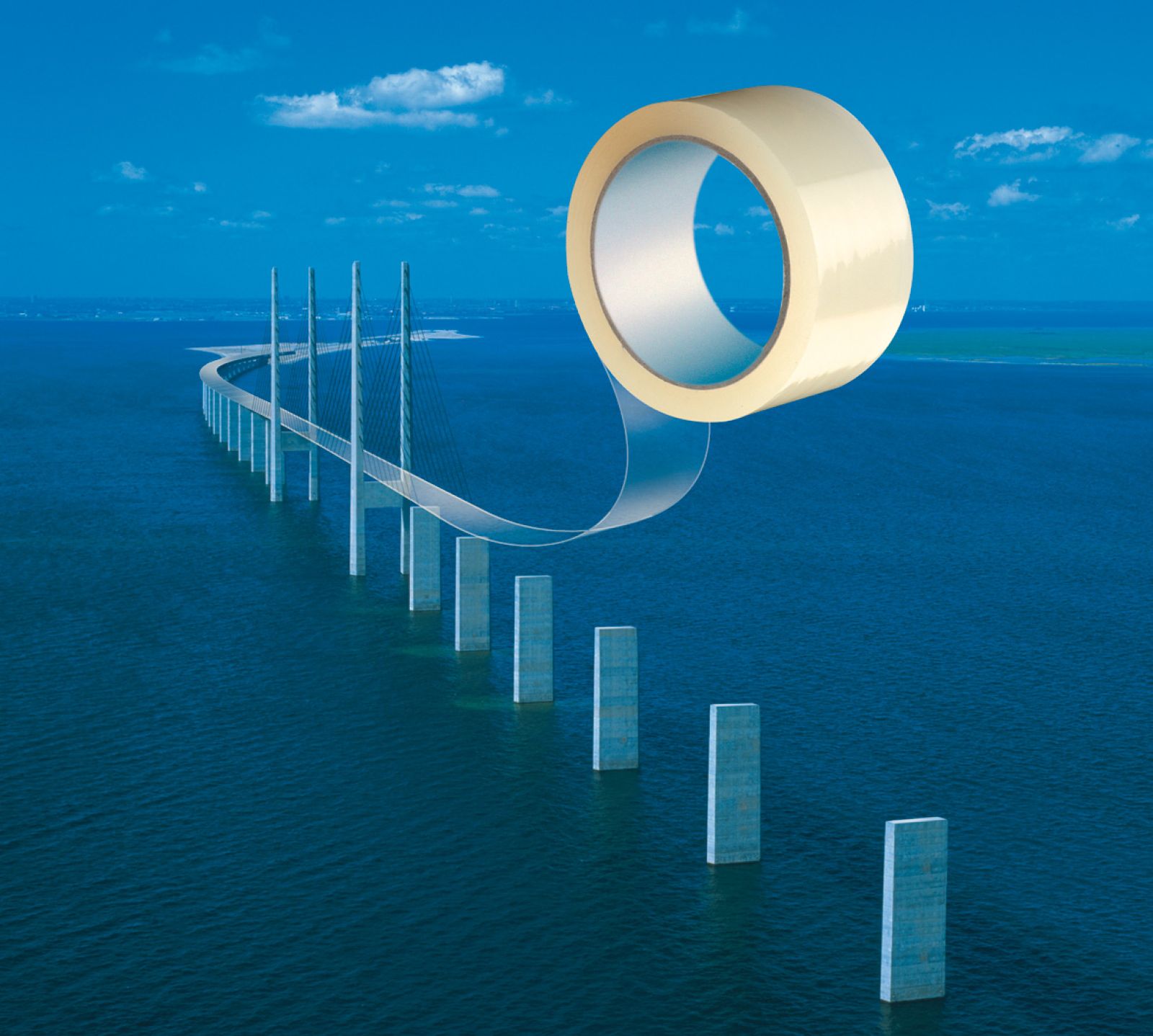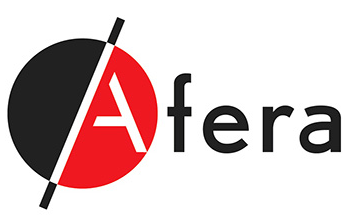
Impact-modified PMMA and co-extruded PVDF/acrylic films for high-performance tapes
Overview:
- Incorporating impact-modified PMMA (Plexiglas®) and co-extruded PVDF/acrylic (Europlex®) films will add performance to your tapes, specifically in outdoor and optically clear applications
- Film properties: no yellowing or colour change over long-term weathering and UV exposure; chemical resistance; easy to clean/soiling resistance; light guidance; high transparency/optically clear; high light transmission; UV blocking; durability; good imprintability; allows for coatings and metallisation; easy processability; easy to cut; and great aesthetics
- The films are used for making optically clear, anti-counterfeiting, tamper-evident, surface protection, marking, safety and warning, reflective, and electronics mounting tapes
- Of critical importance to the adhesive tape industry is that co-extruded PVDF/acrylic film has a very low surface tension, so that dust and other pollutants do not stick to the surface during tape application.
View the complete slide presentation
8th article in Afera’s Sicily conference presentation series
 During Afera’s Sicily Conference, Haroldo Rodrigues, Product Manager in Evonik’s acrylics division, delivered a lecture entitled “Don’t lose face! Plexiglas® films for high-performance self-adhesive tapes” on the possibilities of impact-modified PMMA and co-extruded/acrylic PDVF films for adhesive tapes.
During Afera’s Sicily Conference, Haroldo Rodrigues, Product Manager in Evonik’s acrylics division, delivered a lecture entitled “Don’t lose face! Plexiglas® films for high-performance self-adhesive tapes” on the possibilities of impact-modified PMMA and co-extruded/acrylic PDVF films for adhesive tapes.
The bottom line: Incorporating impact-modified PMMA and co-extruded PVDF/acrylic films will add performance to your tapes, whether it’s outdoor- or optically clear tapes you are interested in.
The challenge of creating tapes made for outdoor applications
Many synthetic polymers are attacked by UV radiation, and products made using these materials may crack or disintegrate. This problem is known as UV degradation and is common in products exposed to sunlight. Mr. Rodrigues suggests that using impact-modified PMMA and co-extruded PVDF/acrylic films, with their UV-resistant properties, will boost the performance of your tapes in outdoor applications. Acrylic film
Acrylic film
Plexiglas® films consist of polymethyl methacrylate (PMMA) and contain polybutyl acrylate (PBA) as an impact modifier. The films are equipped with varying degrees of UV absorbers and are durable, weatherproof, highly transparent, completely colourless or colour-stained, and easily imprintable. Impact-modified PMMA films are also made for light dispersion and transmission. Co-extruded PVDF/acrylic film
Co-extruded PVDF/acrylic film
Europlex® films are PMMA films that are co-extruded with PVDF (polyvinylidene fluoride), in which the fluoropolymer is located on the surface. Both polymers are inextricably bonded in the film. The films are transparent and UV-absorbent, with excellent weather resistance. The PVDF layer provides outstanding resistance to chemicals and a stain-resistant surface, which is easy to clean. The PMMA side can be imprinted with customary colour systems and bonds well with a wide range of substrates. The films are manufactured in thicknesses ranging from 50 to 80 µm.
The Plexiglas® film production process
Because acrylic films are very brittle, Evonik modifies PMMA with an impact modifier. Mr. Rodrigues explains that the company is completely back integrated, producing a range of more than 60 monomers, plus polymers and films. Evonik is able to produce whichever impact modifier is required in order to obtain the desired properties.
Why use impact-modified PMMA and co-extruded PVDF/acrylic films in tapes?
High-performance tapes that incorporate Plexiglas® and Europlex® offer these functionalities:
- No yellowing or colour change under long-term weathering and UV exposure: An accelerated weathering test shows that the material stays clear from 5 to 12 years. Mr. Rodrigues says that specific films can even withstand 20 years of sun exposure without colour change. When tested at service temperatures between -40°C and +85°C in high humidity (a very harsh environment for polymers, especially for transparent materials), films exhibited no fading or colour change. The yellowing index shows a progression from about 0.1 to 3, which is negligible. These are therefore optimal materials for outdoor use.
 Chemical resistance: Co-extruded PVDF/acrylic films are better than impact-modified PMMA films when chemical resistance and transparency are needed. Some film products attack the PVDF layer, but here you have product freedom to produce different layers of PVDF and PMMA based on Evonik’s standard materials.
Chemical resistance: Co-extruded PVDF/acrylic films are better than impact-modified PMMA films when chemical resistance and transparency are needed. Some film products attack the PVDF layer, but here you have product freedom to produce different layers of PVDF and PMMA based on Evonik’s standard materials.- Easy to clean/“anti-graffiti” effect: Co-extruded PVDF/acrylic film has a very low surface tension, so nothing sticks to the surface. This is especially seen as a benefit by tape manufacturers. Graffiti can be simply removed with detergent or even water. This anti-soiling effect can be used to your advantage: dust and pollution in tape applications do not stick to the film; it remains clear. On the other hand, predictability becomes as issue: nothing sticks to the film, so the film is not easily imprintable.
- Light guiding: Films for light dispersion are based on impact-modified polymethyl methacrylate and offer an ideal mix of light transmission and light dispersion for even illumination and light distribution, even at very long distances. This is based on good optical density and purity, and high transparency.
 High transparency/optically clear: Because Plexiglas® has such beautifully clear quality, it can be mistaken for glass in such applications as windshields for aircraft and submarines, and tanks in aquariums.
High transparency/optically clear: Because Plexiglas® has such beautifully clear quality, it can be mistaken for glass in such applications as windshields for aircraft and submarines, and tanks in aquariums.- High light transmission: Colourless Plexiglas® has a light transmission of up to 92%. It provides excellent light transmission and brilliance, without haziness, due to a low optical density.
- UV blocking: The films protect other polymeric substrates against degradation caused by UV radiation. Mr. Rodrigues explains that during the compounding process, a lot of UV is absorbed, so the materials are UV-stable. Then UV stabilisers are added to protect all other substrates, such as PVC and high pressure laminates (HPL). Impact-modified PMMA and co-extruded PVDF/acrylic films are able to block 98% to 99.8% of UV radiation at wavelengths of 280-380 nm. It is important to note that the substrate used with Plexiglas® must contain light-stable pigments.
- Durability: Compared to other transparent films without hardcoat, impact-modified PMMA films have superior scratch resistance and—with the same thickness—a higher stiffness.
- Good imprintability: Impact-modified PMMA films with a very good surface tension of 50mN/m (DIN 53364) can be printed upon: screen, digital, flexography, gravure printing, and hot embossed laser engraving. Printing possibilities are numerous, and the material remains clear.
 Destructible safety materials can be made with a very poor elongation at break (almost 7%) and very poor tensile strength (49 MPA). Co-extruded PVDF/acrylic films are suitable only for back-side printing – on the very high optical-quality surface of the PMMA side.
Destructible safety materials can be made with a very poor elongation at break (almost 7%) and very poor tensile strength (49 MPA). Co-extruded PVDF/acrylic films are suitable only for back-side printing – on the very high optical-quality surface of the PMMA side. - Allows for coatings and metallisation: The films can be coated by a wide variety of coating methods or metallisation by roll-to-roll processes.
- Easy processability: Adhesives can be applied directly onto the films by a very efficient roll-to-roll process, with no plasticiser migration over time.
- Easy to cut: Films can be but by roll-to-roll die-cutting, laser cutting, and slitting.
- Great aesthetics: Colour stability and versatility of surface finishings allow for endless attractive options ranging from highly transparent to opaque or translucent, glossy to matt (or one side each), and light scattering to embossed structures.
Possible applications of Plexiglas® and Europlex®:
- Optically clear tapes.
- Anti-counterfeiting tapes: Plexiglas® can be coated or embossed with high optical-quality holograms. Breakability can be added to this.
- Tamper-evident tapes: Brittle acrylic films can be produced in order to be used as destructible material in tapes.
- Surface protection tapes: Europlex® for chemical resistance.
- Marking tapes: Outdoor applications.
- Safety and warning tapes: Outdoor applications in which tapes are exposed to sunlight for long terms.
- Reflective tapes: A wide range of transparent, colour-stained impact-modified PMMA films are available for retro-reflective traffic signs. The stains must follow very narrow tolerance limits and offer high-colour stability.
 Electronics mounting tapes: New for the electronics industry, impact-modified PMMA films are used as illuminated film for electronic devices: displays and lighting applications, and for edge-lit applications with LEDs as a light source.
Electronics mounting tapes: New for the electronics industry, impact-modified PMMA films are used as illuminated film for electronic devices: displays and lighting applications, and for edge-lit applications with LEDs as a light source.
The only limitation for the adhesive tape market is the thickness of the film. In order to have light transmission, the content of the impact modifier must be reduced, making the material quite brittle. Although it can be easily manufactured in roll-to-roll processes, Evonik is still struggling with thicknesses of 200, 375 and 500 microns and a width of 1.270 mm.
About Haroldo Rodrigues
Haroldo Paganini Rodrigues has a degree in materials engineering with a specialisation in polymers from the Presbyterian University Mackenzie, and a postgraduate degree in business management from the Business School of Sao Paulo, Brazil. During his last year of university, he participated in a joint training programme at Degussa do Brasil (now Evonik) in the logistics department. Following graduation, Mr. Rodrigues became a Technical Sales Representative at Degussa do Brasil, selling raw materials to the Brazilian coatings industry. He then became Business Co-ordinator in Brazil for the product lines of isocyanates, amines, and solvents. In 2008, he became Project Manager for the South American market at Evonik Brazil, and then a year later, switching from coatings to plastics market activities, Product Manager for South America of high performance polymers, basically nylon12, focussed primarily on the automotive and oil & gas industries. In 2014, Mr. Rodrigues became Product Manager for the Plexiglas® films business, focussing on the plastics industry, at Evonik in Darmstadt, Germany. In addition to managing Plexiglas®’s usual applications, he is working on developing Plexiglas® films within the adhesive tape market.
Questions and Comments?
Haroldo Paganini Rodrigues
Product Manager Acrylic Films
Performance Polymers
Evonik
haroldo.rodrigues@evonik.com
T +49 (0) 6151 18 4302

